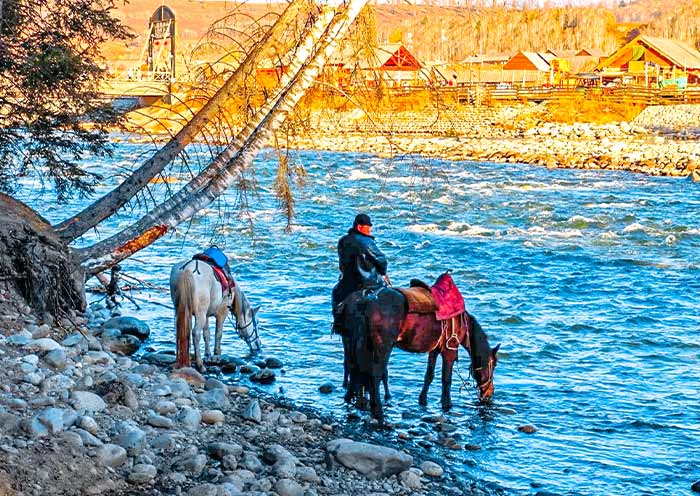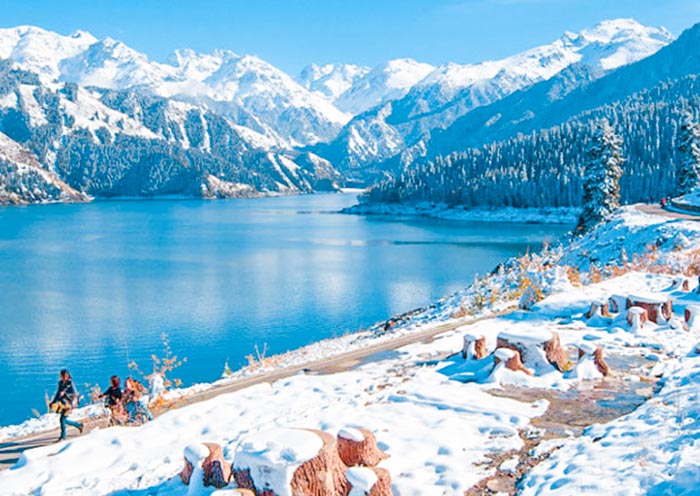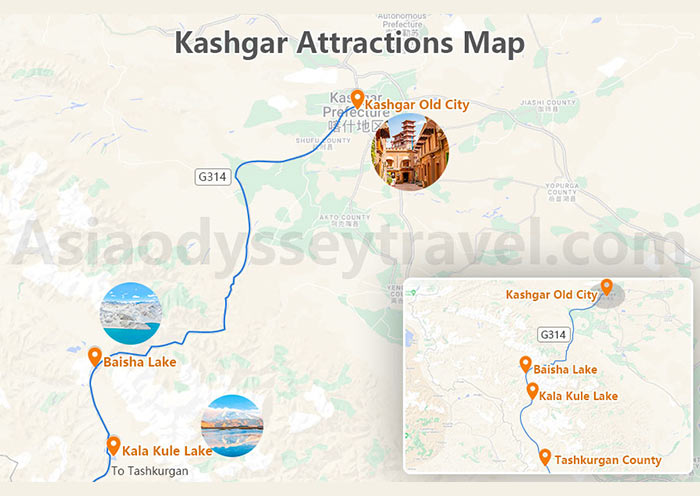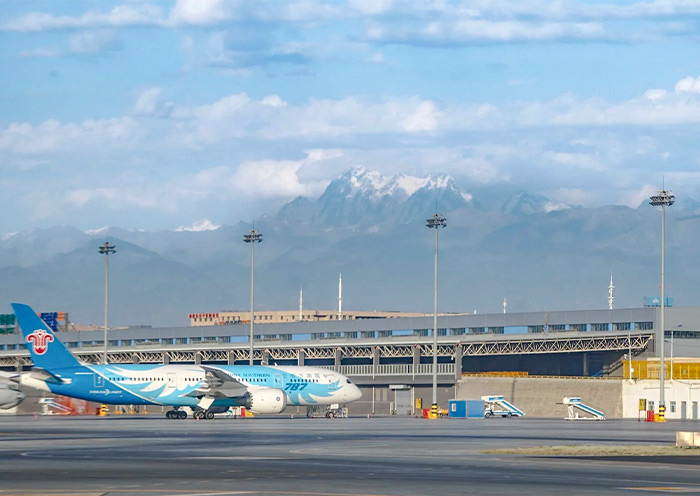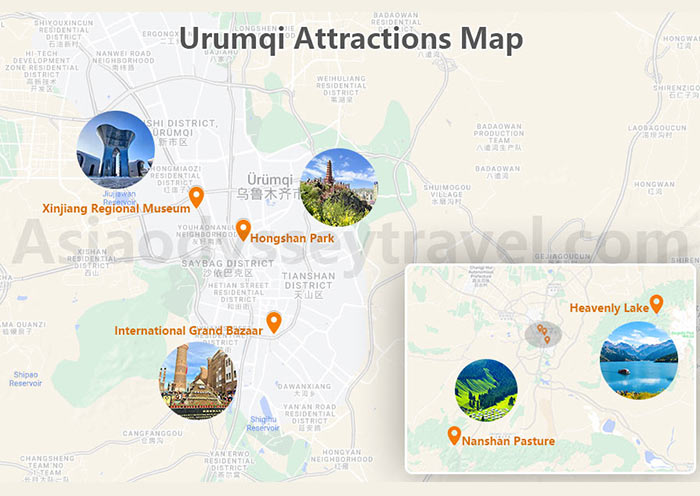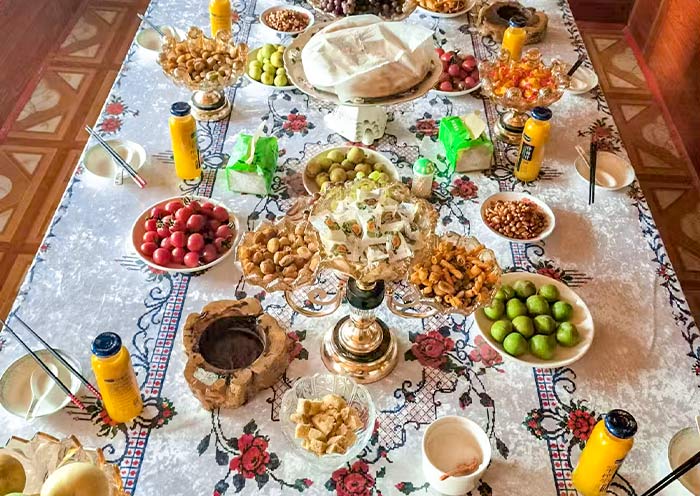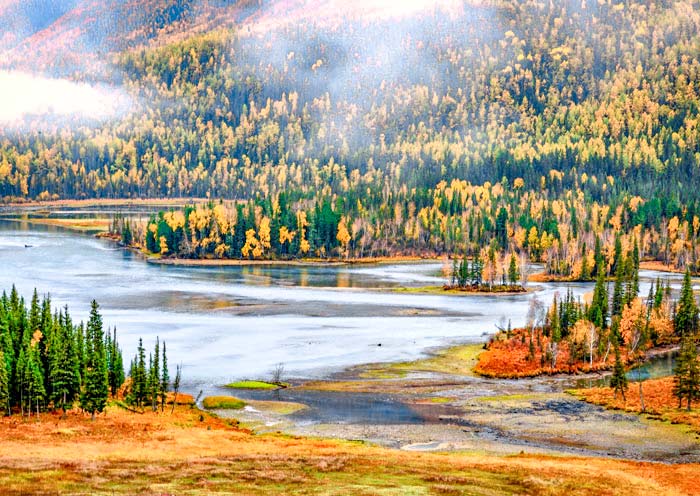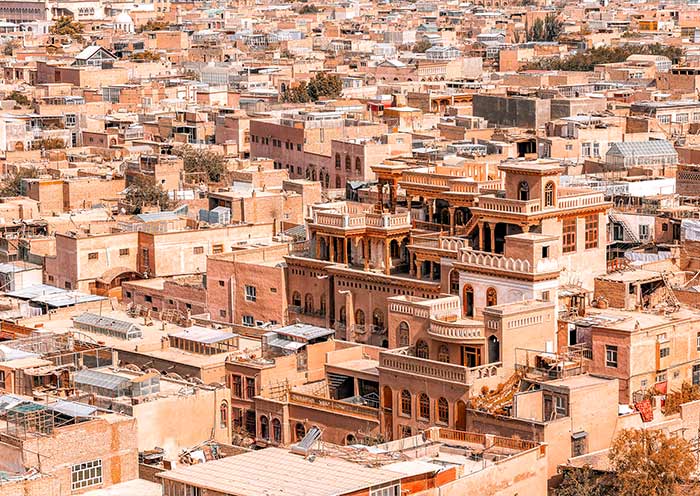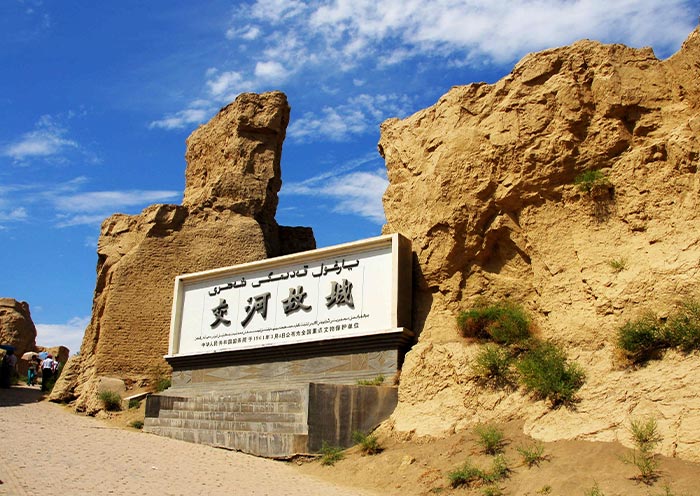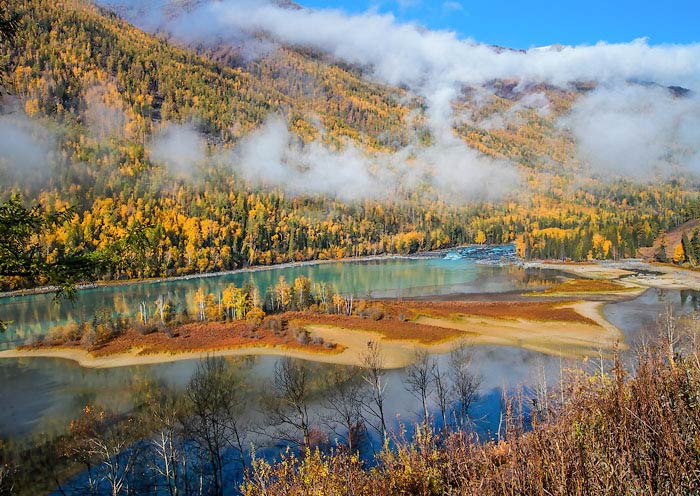Facts of Kashgar Old City
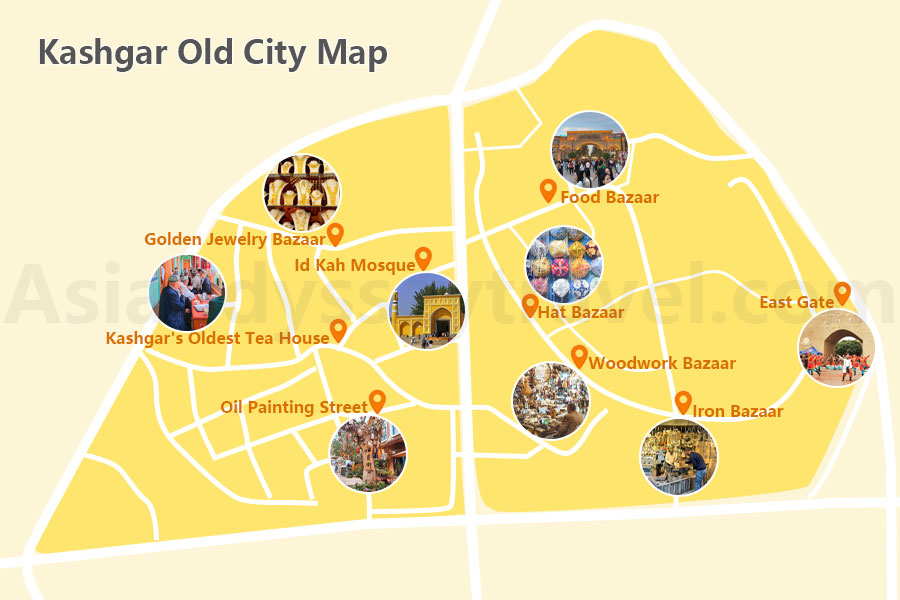
Location: In the heart of Kashgar, China
Opening Hours:All day
Ticket Price: Free for entrance, some historical relics require tickets.
Area: Approximately 20square kilometers. Here's your Kashgar Map.
Time Needed to Visit: 1 day, 2 days if include hands-on culture experiences
Highlights: Traditional architecture, narrow alleyways, markets, local Xinjiang cuisine, and cultural traditions of local people.
Is Kashgar Old City Worth Visiting?
Absolutely! Kashgar Old City is a must-visit destination for anyone exploring Xinjiang, China!
Kashgar Old City showcases rich history along the ancient Silk Road, with its well-preserved architecture and cultural heritage.
The Kashgar Old Town is a melting pot of cultures, reflecting influences from Uyghur, Han, and other ethnic groups in its architecture, cuisine, and traditions. Check out Kashgar Map.
With stunning mud-brick houses, vibrant bazaars, and an authentic atmosphere, Persian Kashgar Old City truly captivates visitors. Don't miss the chance to explore this remarkable place!
Is Kashgar Old City Still Worth Visiting After Renovation?
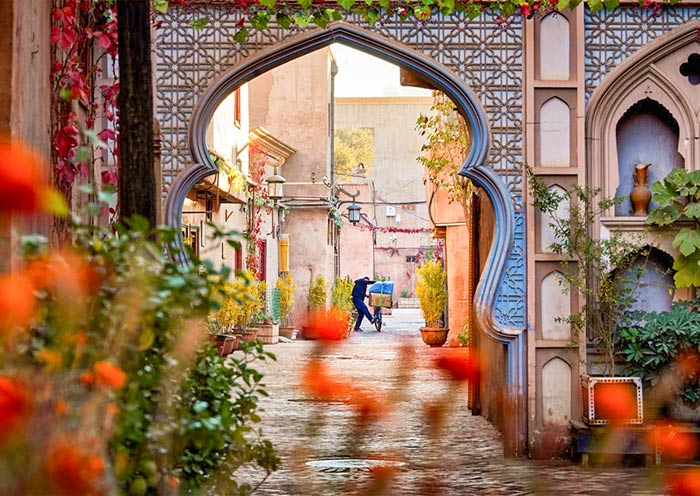
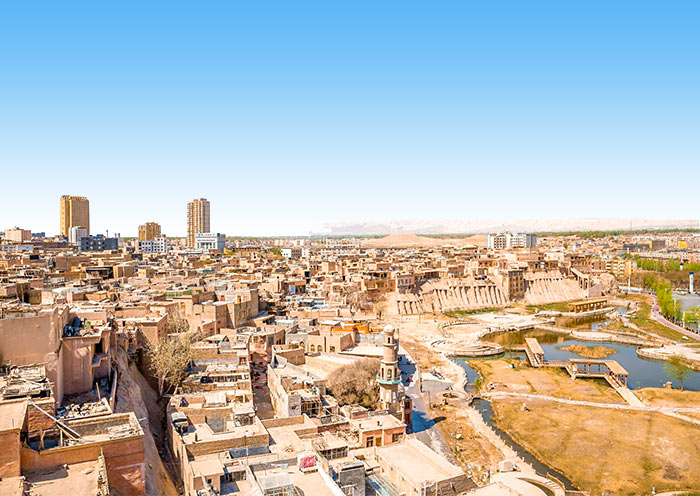
While Kashgar has undergone significant changes, Kashgar Old City has retained much of its original charm, surprisingly with a few tourist friendly updates as well.
Here's why Kashgar Old Town remains a worthwhile destination:
Preserved Architecture: Reconstruction efforts have focused on maintaining the traditional mud-brick houses, keeping the historic character intact.
Cultural Heritage: Kashgar Old City remains a vibrant cultural center, providing glimpses into Xinjiang traditions, Xinjiang Food, and way of life.
Vibrant Atmosphere: The bustling bazaars, lively streets, and friendly locals create a welcoming and vibrant environment in Kashgar.
This is particularly evident as residents have returned to the old Kashgar city following its renovation. The true soul of a city is its people. So, although changes took place over the years, it still remains the same.
Kashgar Old City Silk Road History
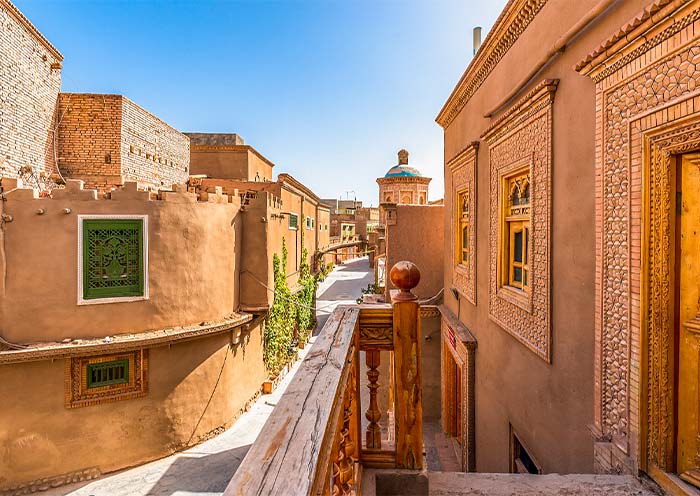
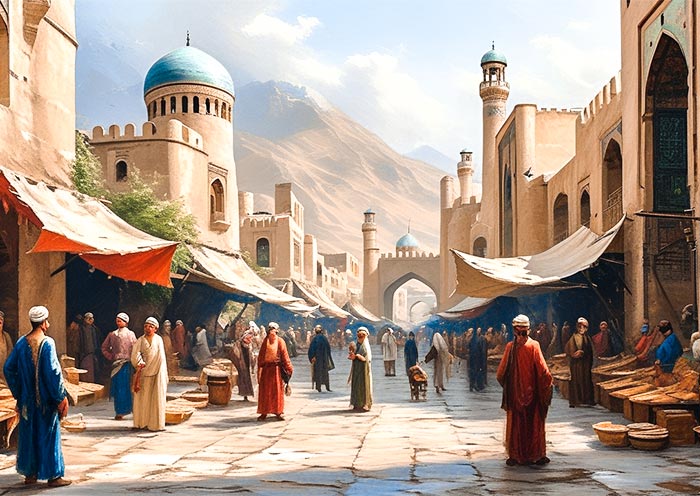
Kashgar Old City's Silk Road history started some 2,000 years ago. The ancient city of Kashgar was established as a key settlement during China's Han Dynasty (206 BCE – 220 CE) due to its strategic location along the trade routes connecting China to Central Asia and beyond.
Kashgar ancient city became a significant trading hub of the Silk Road around the 2nd century BCE, particularly during the Tang (618–907 CE) dynasty. The Kashgar City's location allowed it to facilitate trade between diverse cultures, including Chinese, Persian, Arab, and Turkic traders.
Ancient Origins: The Kashgar city has a long history dating back thousands of years. It was known as "Shule" during the Han Dynasty and was an important outpost along the Silk Road.
Cultural Melting Pot: Kashgar's location at the intersection of various cultures, including Persian, Turkish, and Chinese, made it a melting pot of ideas and traditions. This cultural exchange was reflected in the Karshgar City's architecture, cuisine, and customs.
Strategic Trading Hub: Due to its strategic location, Kashgar city became a crucial stopping point for merchants traveling along the Silk Road. Goods from all over China, Europe, India, Middle East were traded in the Kashgar bazaars.
The Silk Road was an ancient network of trade routes that connected East Asia, from Chang'an (Now Xi'an, China) to the Mediterranean, facilitating the exchange of goods, ideas, culture, and technology.
From Xi'an, the overland silk road route traveled Northwest China through the Chinese provinces of Shaanxi and Gansu, cities like Zhangye, Dunhuang, before splitting into three distinct paths:
Northern Route: This route followed the northern slopes of the Tianshan Tianchi mountains, not specifically north of the Taklamakan Desert.
Southern Route: This path went south of the Taklamakan Desert, connecting to significant trade centers.
Central Route: This route traveled north of the Tian Shan mountains, passing through Turpan, Talgar, and Almaty, in what is now southeastern Kazakhstan.
Northern Route and Southern Route of Silk Road eventually rejoined at Kashgar, an oasis city in present-day Xinjiang.
That's why Kashgar Old City, the most well-preserved ancient town of Kashgar is so important in the Silk Road History.
Visit Kashgar Old City with Marco Polo: Things to Do in Kashgar Old City
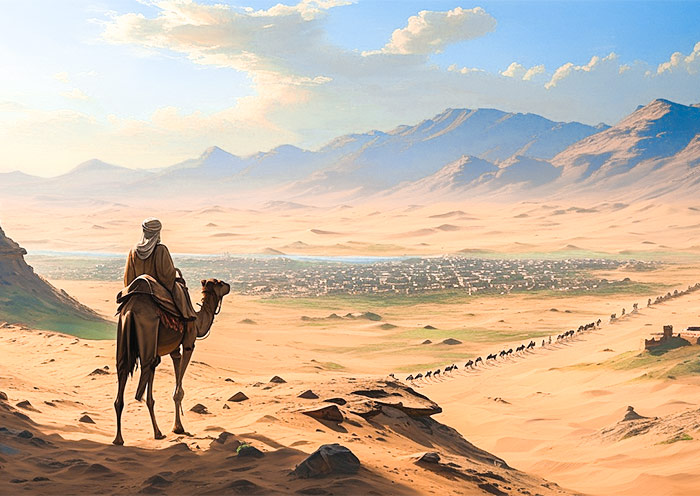
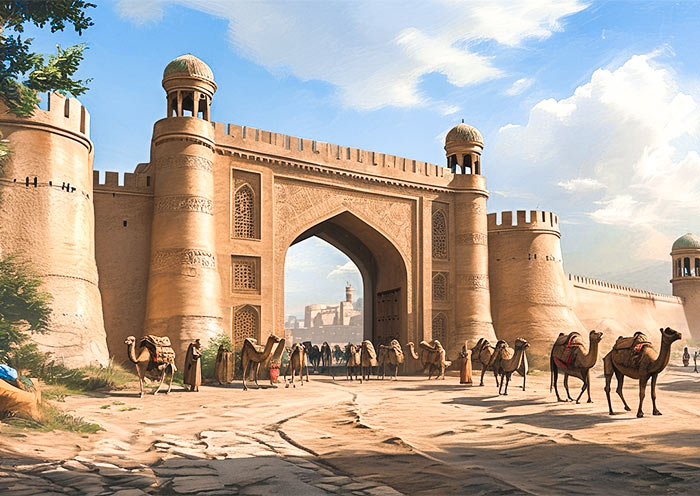
When visiting Kashgar Old City, you don't simply travel, you put yourself in the historical scenes where all the glorious history happened at the exact location where people made the history thousands years ago.
The scenes in the good old Kashgar town may differ somewhat, but the vibe, the stories behind them, and the fascinating changes that have taken place over the centuries are what truly matter—especially when you visit destinations like Kashgar Old City.
So why not travel like Marco Polo, the merchant, explorer, and writer who first introduced Asia in detailed written form to Europe?
Yes, even today, when you visit Kashgar, you can still connect with Marco Polo. The Old City of Kashgar, despite the changes that have been made, still retains the same atmosphere as in ancient times, because the legacy of Kashgar Old City is ever-evolving and timeless at the same time.
Let's travel in sync with Marco Polo, imagine how Marco Polo visited Kashgar ancient town and follow his footsteps in Karshgar Old City!
Visit Kashgar Old City Starting from Its Gate with Opening Show to Watch
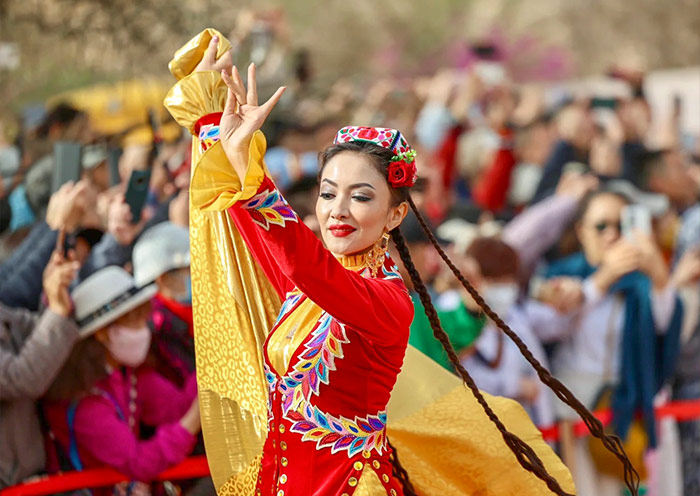
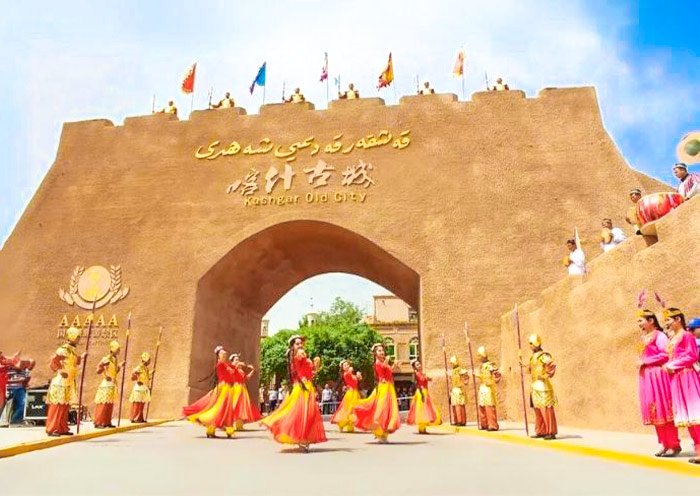
When Marco Polo arrived at the gate of Kashgar, he would have experienced the city's vibrant and bustling atmosphere.
With the bell ringing on camels' neck inbound and outbound merchants, caravans, he sees Chinese, Persians, Arabians and many local people converging in Kashgar city.
Though fortified, the impressive mud-brick walls and ornate gate would welcome him, marking his entry into Kashgar, a world of diverse cultures and commerce.
Today, visiting the Old City Gate of Kashgar in the eastern part of town offers an even more dazzling experience, highlighted by a Gate Opening ceremony at 10:30 AM.
Tourists from all over the world gather to witness this fascinating event, which features captivating performances of Uyghur songs and dances. When you visit Kashgar Old City it's a must see. Do get there early to get a front row spot.
Admire the Distinguished Architectural Design in Kashgar Old City

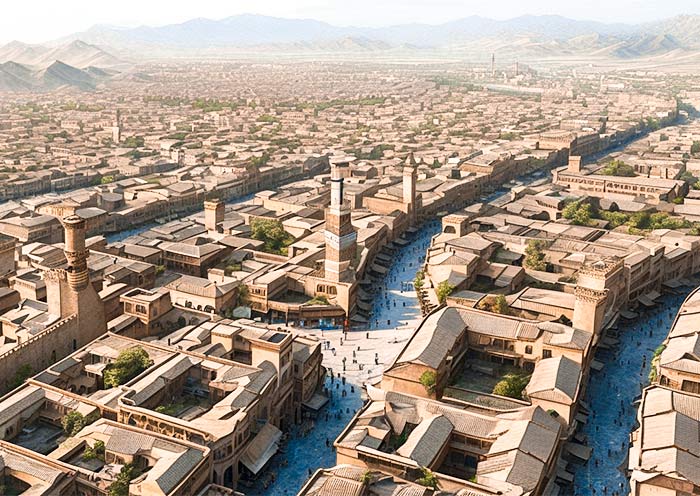
Upon entering Kashgar, Marco Polo would have been struck by Kashgar Old City's unique architecture, a harmonious blend of Islamic and local design elements.
He would see mud-brick structures with thick walls, providing shelter from the harsh climate, and flat roofs adorned with wooden balconies that reflect the Kashgar region's cultural practices.
Traditional Uyghur culture places a greater emphasis on interior design and decoration. The focus is on creating a comfortable and welcoming living space within the home, rather than on external appearances.
That's why Marco Polo would see mostly Earth structure with plain facades when he visited Kashgar city. However in present days when you visit Kashgar Old City the facades of the mud-brick buildings would look stunning and photo-worthy spots can be found all across the old city.
That's why Marco Polo would mostly see Earth structures with plain facades when he visited Kashgar. However, in present times, when you visit the Old City of Kashgar yourself, the facades of the mud-brick buildings look stunning as well, and photo-worthy spots can be found throughout the old city.
Prefer to visit the most original buildings in Kashgar Old City, just like what Marco Polo saw? Sure! Even today, you can visit the Gaotai Minju, or Gaotai Residential Area (高台民居), which features the most well-preserved mud-brick and timber building blocks.
These high-platform dwellings are built on a raised area on the east side of the Kashgar Old City. These traditional Uyghur homes, constructed with mud-brick and timber, are some of the oldest and most iconic structures in Kashgar, reflecting the ancient architectural style of the region.
Tip: Kashgar Old City is known for its maze-like winding streets. That's one of the old city's charms. The Kashgar Old City has retained its narrow streets while also featuring pretty little signs painted on the pavement.
If you plan to take Instagram-worthy photos, follow the signs painted on the roads, or you can skip all research and join a Kashgar tour with Asia Odyssey Travel.
Mingle & Join Kashgar Local at Tea House
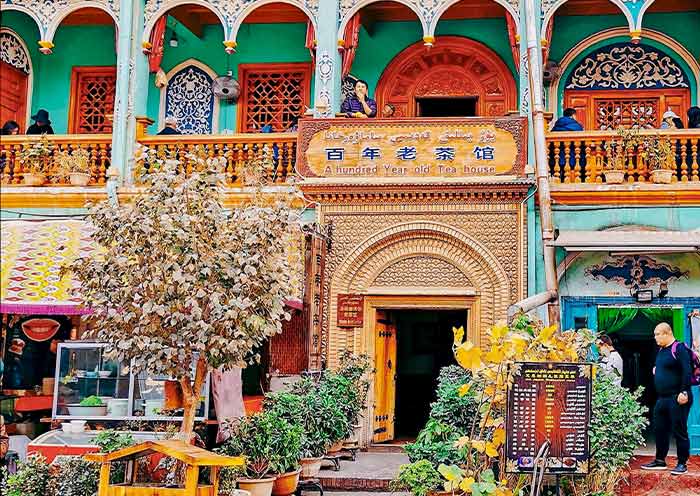
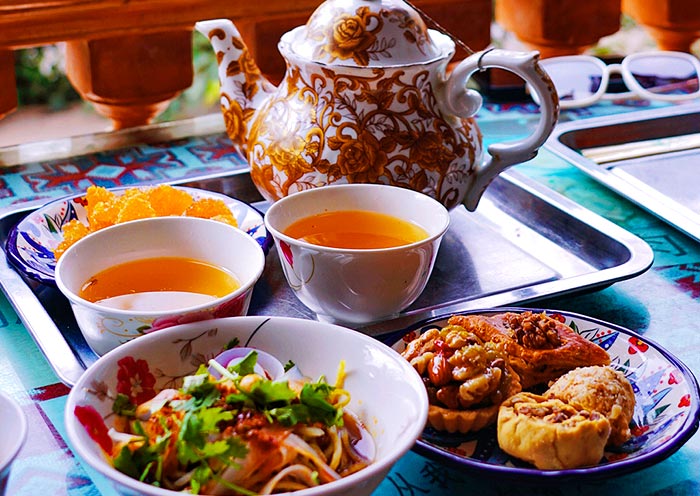
Upon arrival Marco Polo and his travel mates, his farther and uncle, would need to regroup after the long trip, and also, you always need info on your your destination.
A Karshgar local tea house is just perfect to do that. As merchants, the Polos wouldn't miss the chance to try tea and gather information at a tea house in Kashgar.
When you travel to Kashgar Old City today there's still an ancient Tea house. The A Hundred Year Old Tea House(百年茶馆) is your place to go in Kashgar. This is also the shooting site of the Oscar winning file, the Kite Runner.
Try the Dates Tea, and Rose Milk Tea with honey sugar, which might just be the same tea Marco Polo drank along the silk road. Enjoy tea and performance, better yet, mingle with Kashgar local people and join the dance!
Visit Kashgar's Bazaar: Shop & Haggle Just Like the Merchant, Marco Polo
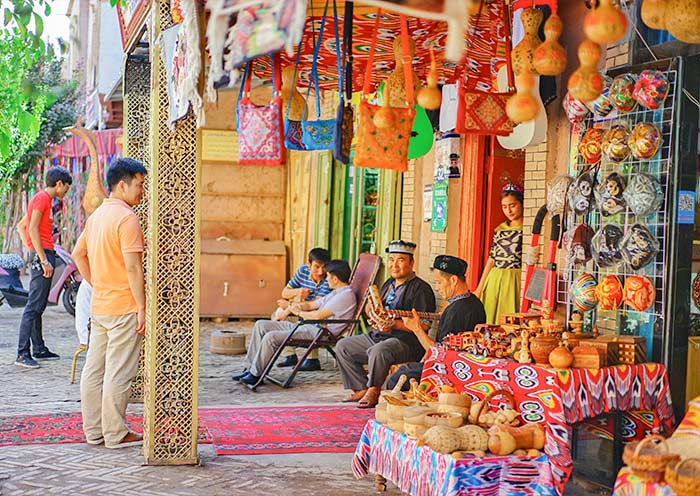
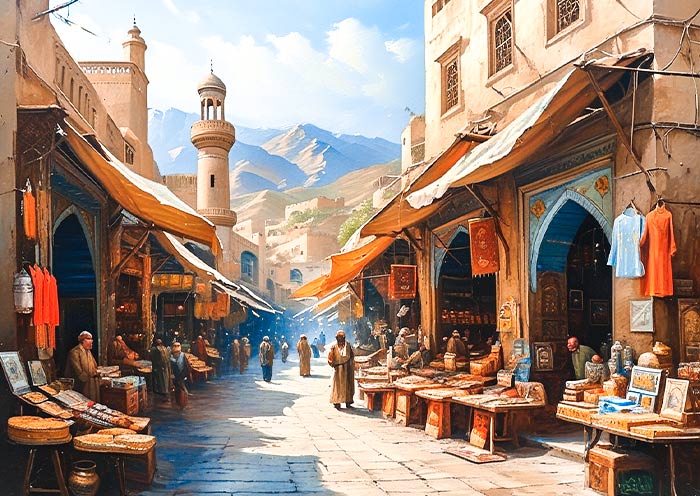
In The Travels of Marco Polo, Polo describes Kashgar as a significant and bustling trading hub along the Silk Road.
As one of the most prosperous trading hub along the Silk Road Kashgar's Bazaars are not to be missed, not by Marco Polo, neither by you.
Marco Polo would have seen a wide variety of goods at Kashgar City Bazaar- silk from Suzhou, China, vibrant spices from the Middle East; intricate carpets woven by Kashgar local artisans; beautifully crafted ceramics and pottery; exotic fruits and dried fruits from Central Asia; and traditional Uyghur textiles adorned with colorful patterns.
As a merchant, he likely bargained and explored the one of the prototypes of the present Xinjiang Food.
The good news is the Bazaars are still here in Kashgar Old City, you can visit them on your Xinjiang Silk Road :
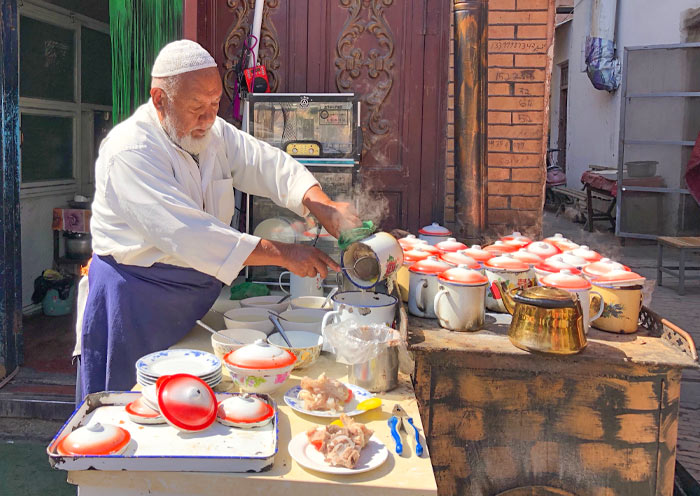
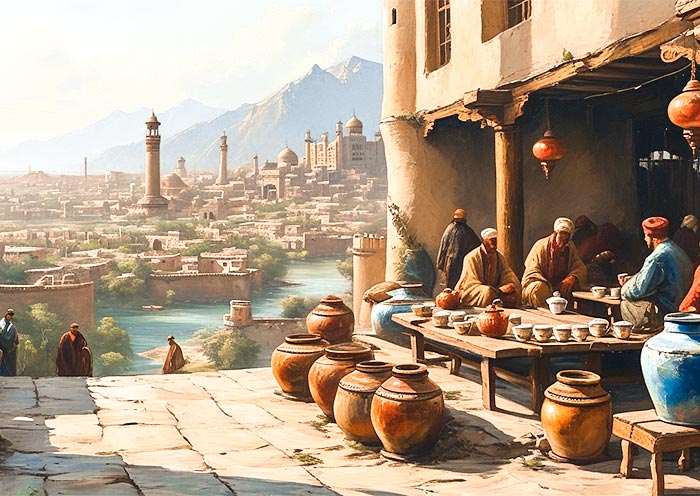
Golden Bazaar (黄金巴扎)
The Gold Bazaar is a vibrant marketplace known for its exquisite jewelry and handicrafts. Tourists can explore stalls filled with gold and silver jewelry, intricate designs, and traditional Uyghur crafts. Visitors can engage in bargaining and perhaps even watch artisans at work, making it a perfect spot to find unique souvenirs.
Hat Bazaar(花帽巴扎)
The Hat Bazaar specializes in traditional Uyghur hats and textiles. Visitors will find a stunning array of colorful hats, known as doppa, along with beautiful fabrics and embroidered items.
It's a fantastic opportunity to purchase authentic Uyghur garments and accessories while appreciating the craftsmanship behind them.
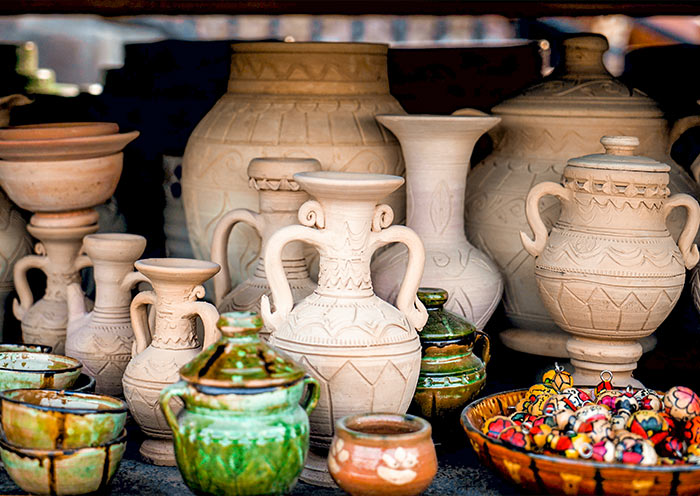
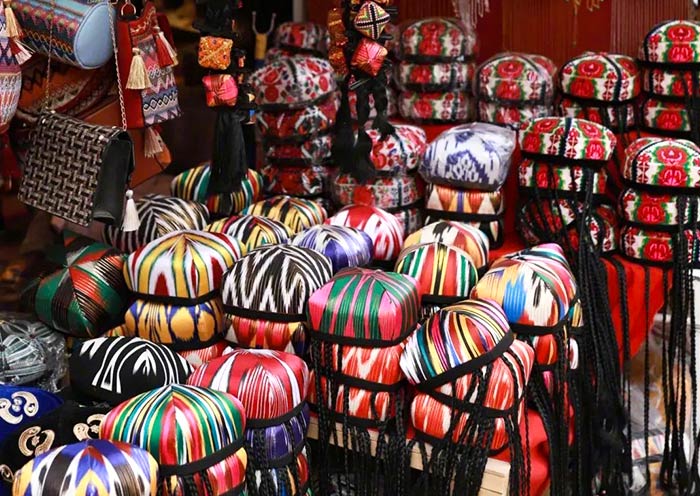
Woodwork Bazaar (木器巴扎)
The Woodwork Bazaar showcases an impressive collection of wooden crafts, from intricate carvings to furniture.
Visitors can purchase unique wooden items, such as decorative boxes and utensils, while enjoying conversations with the craftsmen about their art. This bazaar highlights the rich tradition of woodwork in Kashgar.
Oil Painting Street(油画街)
Unlike the water towns in southern and central China, which are most ideal for traditional Chinese painting, the desert regions of China, like Kashgar Old City, are undoubtedly better illustrated in oil paintings.
So, if you are looking for an art piece to remember the ancient city of Kashgar, do visit this oil painting street.
Note: The most famous Bazaar in Kashgar, fondly known as the Grand Bazaar, has been relocated and under construction as of September 2024.
Do consult with your Travel Expert at Asia Odyssey Travel to find the most up to date travel info and plan your Xinjiang Silk Road tour !
Learn Culture & History at Karshgar Museum & Mosque
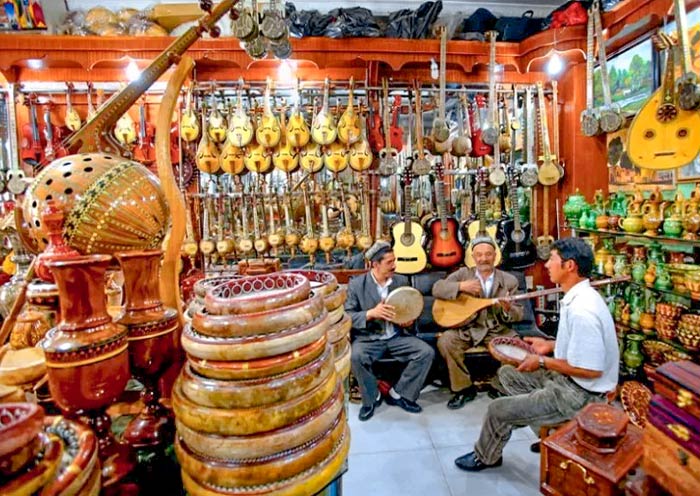
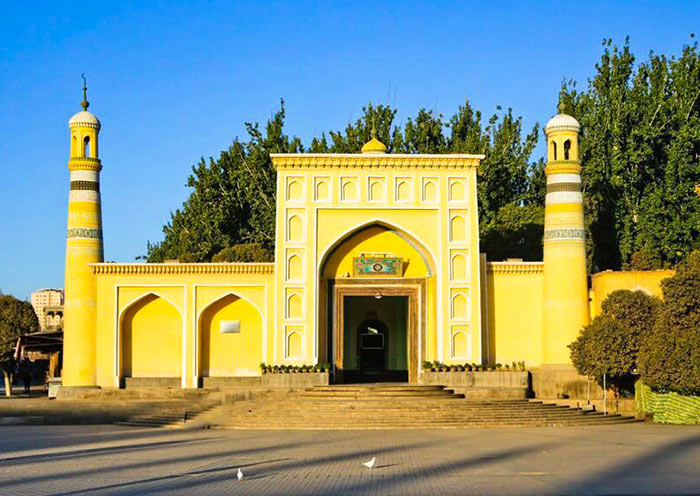
When Marco Polo visited Kashgar, the history of the city would have been mostly conveyed through folklore or by scholars.
When Kublai Khan(忽必烈汗) sent the Polo brothers back to Europe, he tasked them with delivering a letter to Pope Clement IV and bringing back Western knowledge. This mission was essentially diplomatic, but also a contribution to the ancient China Silk Road .
Kulbai Khan gave them a foot long and three inches wide inscribed golden tablet! This was essentially a very fancy diplomatic passport!
Imagine when they traveled back to Europe via Kashgar with Gold passport issued by the great Khan! People would welcome them with best food and respect, wouldn't they?
The Polo brothers, returning from Kublai Khan's court, would have been feted with grand ceremonies and feasts in key trade hubs like Kashgar. Their understanding of the local culture would deepen with the more immersive experience as well!
Today, when you visit Kashgar Old City, there are museums where you can learn about the history of Kashgar.
And of course, be sure to visit Id Kah Mosque (艾提尕尔清真寺), one of the largest mosques in Xinjiang, China, to see how local people conduct their spiritual lives.
In the meantime if you would like to travel in a more immersive style, get to know local people and join their banquet just like the Polo brothers in the old days, then travel with Aot!
Our tour guide will lead your way to a local family visit! Contact us now to plan a most Authentic Kashgar Tour
Where to Stay in Kashgar Old City:West Town of Kashgar, Chic Vibe, Easy Access
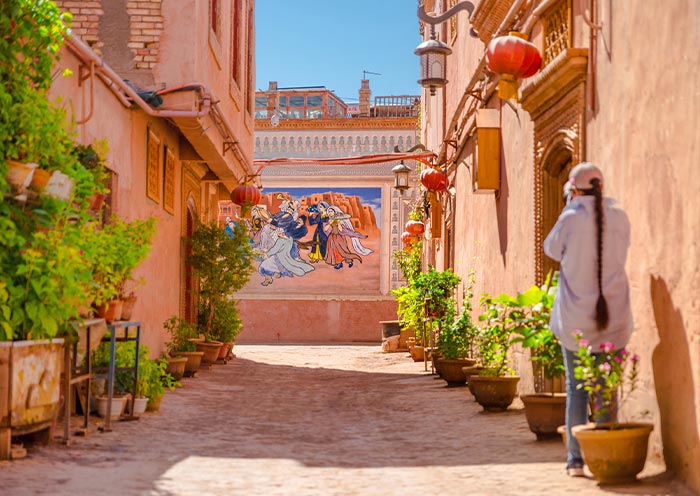

With all the winding streets and countless photo-worthy spots in Kashgar Old City, it is best to simply book accommodation within the city. This way, you don't have to worry about transportation to your hotel when it gets late.
Kashgar Old City is divided into eastern and western parts. There are boutique B&Bs in both areas of the town, and these B&Bs are a must-try as well.
If you prefer a more lively and Instagram-worthy vibe, the eastern part of the town is ideal for staying. The western part comes with more local Kashgar flair and a down-to-earth ambiance.
Tip: If you are not fan of walking with luggage try to stay near the gates of Kashagar Old city. The accommodation in inner part of the Old city is not reachable by cars.
To choose the best accommodation for your needs, simply Contact your travel expert a Asia Odyssey Travel .
How to Get to Kashgar Old City
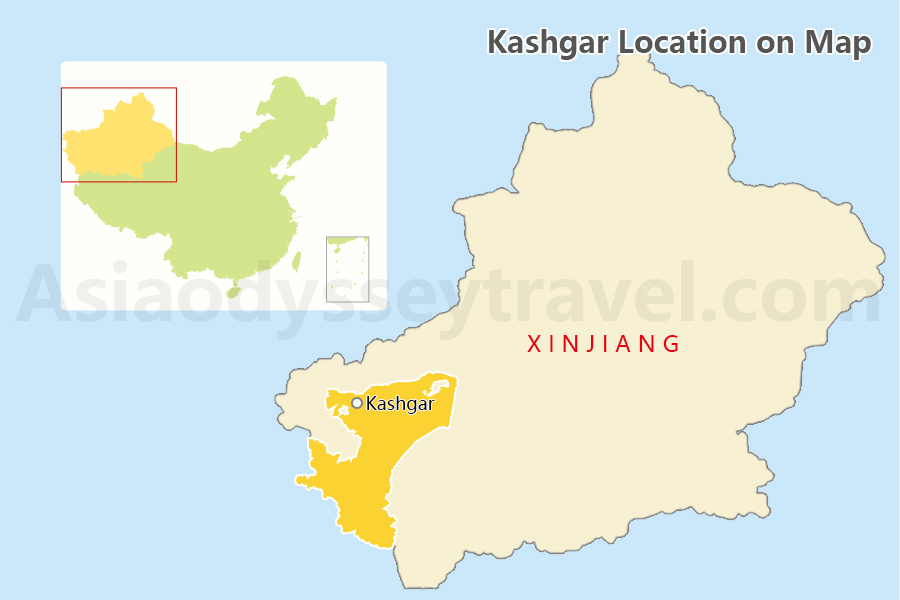
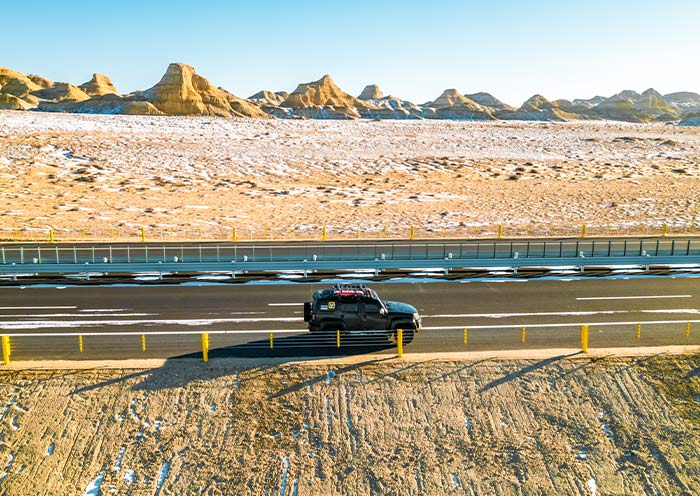
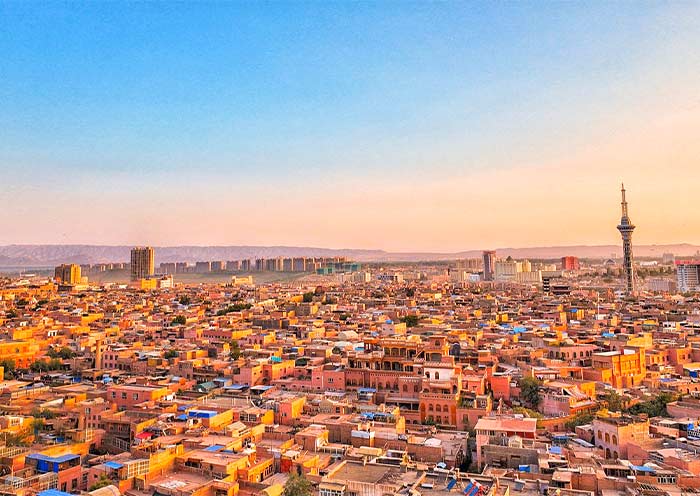
Getting to Kashgar Old City is essentially the same as getting to Kashgar, as the Old City is conveniently located within the present-day Kashgar.
Take Bus 20 or 6 to reach Kashgar Old City from Kashgar Railway Station.
You can take Tourist Bus Line 1 from Kashgar Laining Airport to get to the Old City of Kashgar.
Choosing a taxi is a better option to reach Kashgar Old City, as it will cost no more than 30 RMB whether you are coming from the airport or the railway station.
Here are how to get to Kashgar:
Urumqi to Kashgar>>, Xi'an to Kashgar>>, Beijing to Kashgar>>, Chengdu to Kashgar>>.Considering that public transportation in the northwestern part of China is not as developed as in eastern China, getting to Kashgar Old City might require a bit of planning.
Simply choose a Xinjiang Tour or Silk Road Tours with Asia Odyssey Travel. Our travel expert will have everything mapped out for you—transportation, accommodation, meals, and insider tips. We have it all covered for you!
Tips for Visiting Kashgar Old City
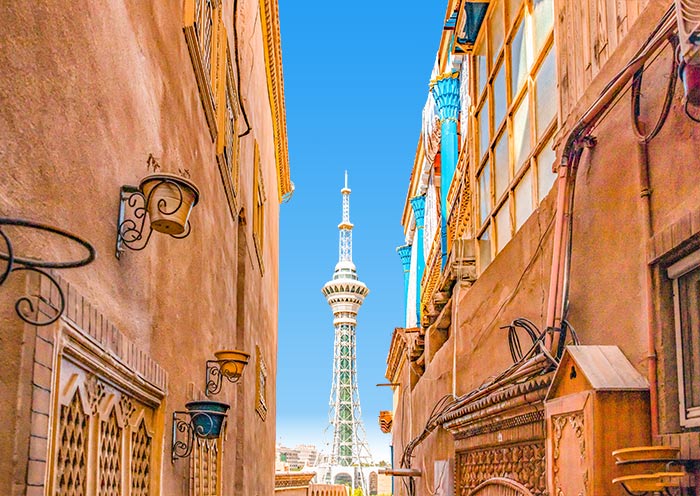
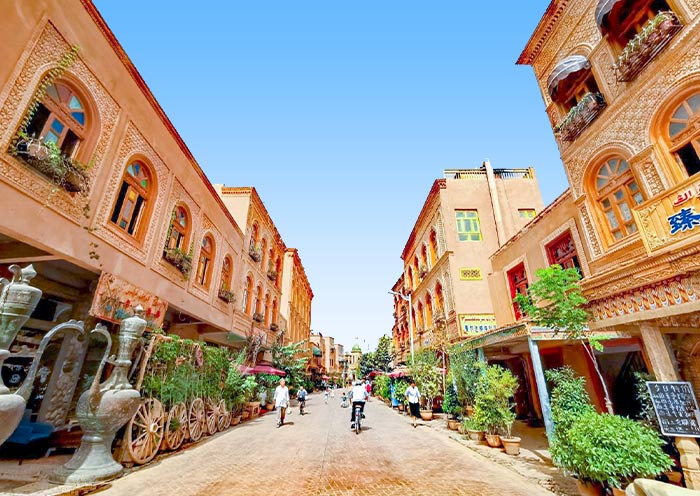
1. Explore on Foot
Wander through the narrow alleys and winding streets to truly appreciate the unique architecture and local life. Don't be afraid to get lost. There are road signs everywhere.
2. Visit Early or Late
To avoid crowds and enjoy a more peaceful experience, consider visiting early in the morning or later in the afternoon when the light is beautiful for photography.
3. Try Local Cuisine
Don't miss the opportunity to sample authentic Uyghur dishes, such as lamb kebabs, hand-pulled noodles (laghman), and Xinjiang-style pilaf. Look for local eateries or street food stalls.
4. Visit Key Attractions
Make sure to see significant sites like Id Kah Mosque, the largest mosque in Xinjiang, and the vibrant bazaars
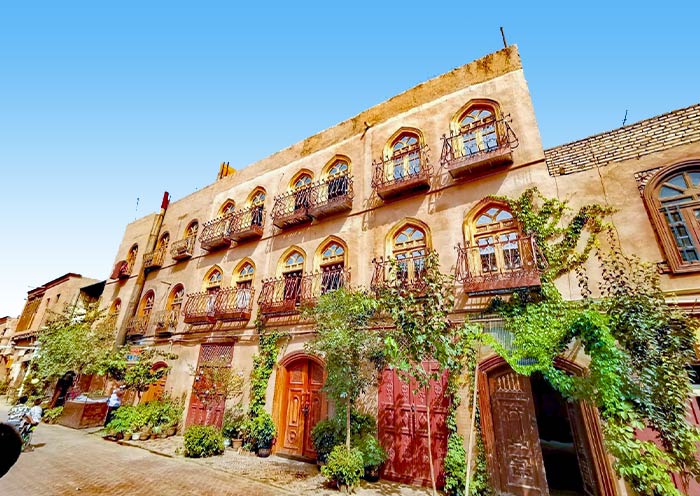

5. Respect Local Customs
Be mindful of local customs and dress modestly, especially when visiting religious sites.
6. Stay Hydrated
The climate can be hot and dry, so carry water with you and stay hydrated while exploring. Check best time to visit
7. Plan for Cash Payments
Many shops and food stalls may not accept credit cards, so it's wise to carry cash in local currency (RMB) for your purchases. Alternatively learn how to do E-pay in China.
How to Pay in China as a Foreigner (Wechat & Alipay)?
8. Join a Guided Tour
Consider joining guided Silk Road Tours to gain deeper insights into the history and culture of Kashgar and its significance along the Silk Road. Asia Odyssey Travel is your best travel companion in Asia!
Travel Ideas for Xinjiang Tour
Urumqi (1-2 days): Start your journey in Urumqi. Visit the Xinjiang Regional Museum and explore the Grand Bazaar. Consider a day trip to the scenic Heavenly Lake for hiking and relaxation.
Kashgar & Tashkurgan (3-4 days): Explore the Old Town, dazzling Bazaars. Take a day trip to Tashkurgan to see the stunning scenery of the Pamir Plateau and visit Tajik family. See more old towns in China >>
Turpan & Korla (2-3 days): Travel to Turpan, famous for its unique desert landscape and historical sites like the Karez irrigation system and the Flaming Mountains. Then, head to Korla to explore the ancient Iron Gate Pass and enjoy local Xinjiang Food.
Kuqa & Hotan (2-3 days): Next, visit Kuqa to explore the Kizil Caves and local culture. Continue to Hotan, known for jade, silk production and the ancient ruins of the Hotan Kingdom.
Aletai, Hemu Village & Kanas Lake (3-4 days): Venture north to Aletai, where you can explore picturesque valleys and enjoy outdoor activities. Visit Hemu Village for rural experiences, and head to Kanas Lake for breathtaking sunrise/sunset views.
Burqin & Karamay (2 days): Visit Burqin to see the Rainbow Mountains and enjoy outdoor activities. Then, explore Karamay, known for its unique geological formations and the Ghost City.
Yining & Naraty Grassland (2-3 days): Travel to Yining, explore local markets and attractions. visit Naraty Grassland for horseback riding and a taste of pastoral culture.
When planning your Xinjiang Itinerary, do consider how vast Xinjiang is as a travel destination. So allocate your time to maximize your Xinjiang Trip.
Browse more Xinjiang tours with Asia Odyssey Travel or simply get in touch with your Travel Expert; tell us your travel interest, we have you covered. Contact us now!
Travel with Asia Odyssey Travel, Culture & Nature Xinjiang Tour


First-time visitor or not, Xinjiang is Not What You Think. It's More Than What You Imagine!
Looking for natural grandeur? Experience the the sunrise at pristine Kanas Lake, the sky-touching Naraty Grassland, the boundless Taklamakan Desert along the acient Xinjiang Silk Road.
Looking to broaden your horizons? Discover exquisite Uyghur crafts at the bazaars at Kashgar, the nomadic dances of Tajiks on the Pamir Plateau at Tashkurgan, and the finest vineyards at Grape Valley at Turpan. You can even visit the oldest Buddha Grottoes in China!
Your Xinjiang Trip will be an eye-opening adventure and a soul-touching journey!
Asia Odyssey Travel: Your Best Xinjiang Guide
- Genuine Service: Not just an agency—we are your travel companions.
- Exclusive Access: Secure your tickets and accommodations even in high season.
- Authentic Experience: Best local guides with cultural insights.
- Travel Made Easy: Flights, hotels, activities—all taken care of!
- Skip the Tourist Routine: Avoid all tourist traps and travel down to earth
- 24/7 Support: Always on-line for your peace of mind
Asia Odyssey Travel, leading your China Adventure Since 2010. What's your travel idea? Let's talk!

